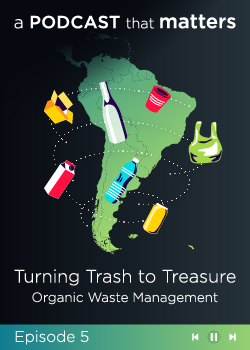
Small scale biorefining in rural areas
Details
Description
Call updates
Apr 26, 2023 12:02:54 PM
The submission session is now available for: HORIZON-JU-CBE-2023-IA-01(HORIZON-JU-IA)
Small scale biorefining in rural areas
TOPIC ID: HORIZON-JU-CBE-2023-IA-01
Programme: Horizon Europe Framework Programme (HORIZON)
Call: Circular Bio-based Europe Joint Undertaking (HORIZON-JU-CBE-2023)
Type of action: HORIZON-JU-IA HORIZON JU Innovation Actions
Type of MGA: HORIZON Action Grant Budget-Based [HORIZON-AG]
Deadline model: single-stage
Planned opening date: 26 April 2023
Deadline date: 20 September 2023 17:00:00 Brussels time
ExpectedOutcome:
Successful proposals will contribute to the Bioeconomy Strategy, the Long-Term Vision for Rural Areas, and the Common Agriculture Policy by promoting new economically viable and environmentally sustainable business models for a successful green transition in primary production and rural areas in line with the European Green Deal objectives.
Project results should contribute to the following expected outcomes:
Deployment of sustainable, inclusive, and reliable biobased value chains in rural areas with a focus on fair economic returns at local (farm) level
Industrial competitiveness, strategic autonomy and resource independence of bio-based value chains of EU member states and/or Associated countries
Improved circularity and resource efficiency via practical application of the circular (bio)economy concept, e.g., by maximising the valorisation of residual biomass
Contribution to additional, diversified incomes and generational renewal in rural areas, with the potential for a multiplier effect when replicated across the EU
New skilled jobs opportunities and investments in the bio-based sectors in rural areas, particularly in regions with underdeveloped capacities, improved innovation capacities and product portfolio extension in primary production sectors and SME’s
Significant reduction of land use and other climate and environmental benefits
Efficient recycling of nutrients transportation and logistics costs reduction and overall enhanced circularity of nutrients cycles
Social acceptance of circular bio-based solutions and products
Scope:
Small-scale biorefineries are attractive, especially to rural stakeholders, because they may not require a high level of initial investment in comparison to large-scale facilities and, therefore, often provide a quicker return on investment. In addition, technology providers benefit from this model because of its high replication potential across Europe. Small-scale biorefineries have the potential to offer diversification opportunities for primary producers and local rural stakeholders by:
processing their biomass directly at source (shortening logistic chains and avoiding degradation, increasing production value) to produce new biorefinery products based on the circular use of local resources, and/or
providing additional sources of income in rural areas and supporting the economy of scale with new biorefinery products based on the circular use of local resources.
While some small-scale and/or modular biorefinery solutions, such as the EIP-OG Biorefinery Glas[1] and BBI IA-DEMO AGRI-MAX, have already been successfully demonstrated, both technical and non-technical barriers still exist that prevent the broad implementation in Europe. Downscaling in particular poses a challenge in maintaining process- and cost-efficiency competitive with large scale processes that can exploit economy of scale. Smart and integrated process designs, as well as circular processes maximising the material use, can provide innovative solutions, while maximising the environmental benefits and bringing more value to the concerned rural actors.
Proposals under this topic should:
Demonstrate the technical suitability and economic viability of small scale decentralised biorefinery concepts, which may include modular and mobile units, in rural areas, thereby considering safety and security issues for the operators of the plant and the possible interferences with the rural landscape (e.g. in terms of biodiversity).
Develop, demonstrate and validate resource-efficient technologies with a view to add value to locally available resources (underutilised biomass; by-products; residues; solid, liquid and gaseous waste and residual streams) at the point of origin, either as feedstock for conversion, or as process medium or growing medium for feedstock for further conversion.
Seek synergies with the existing regional food, feed, or bioenergy value chains to further strengthen their economic and environmental sustainability in line with the cascading principle of biomass use. In the context of CBE JU food, feed, and bioenergy (including biofuels) as main products are out of scope, but the related existing value chains can be involved. Food and feed ingredients and soil nutrients are in scope[2].
Assess the environmental (including elimination / reduction of pollution from the processing operations) and socio-economic performance of the demonstrated value chains.
Evaluate the replication potential of the small-scale biorefinery concept, provide a sound business plan and training material in particular for primary producers and other rural actors.
Ensure an active involvement and profit sharing of primary producers in the value system.
Cooperate, if applicable, with central hubs, such as local and regional hubs, distribution centres, collection and processing points for further processing steps.
Proposals must apply the concept of the 'multi-actor approach’ and ensure adequate involvement of primary producers and other relevant actors in rural areas.
Proposals are encouraged to include regions with underdeveloped capacities and regions where rural bio-based pilot plants and demonstrational sites are missing or underrepresented.
Proposals should also describe their contribution to the Specific CBE JU requirements, presented in section 2.2.3.1, and the Cross-cutting elements, highlighted in section 2.2.3.2 of the CBE JU Annual Work Programme 2023[3].
Where relevant, proposals should consider synergies and complementarities with results of past and ongoing EU funded projects and calls, including BBI JU.
[1]https://biorefineryglas.eu/
[2]See CBE JU Strategic Research and Innovation Agenda (https://www.cbe.europa.eu/reference-documents)
[3]CBE JU Annual Work Programme 2023 (https://www.cbe.europa.eu/reference-documents)



